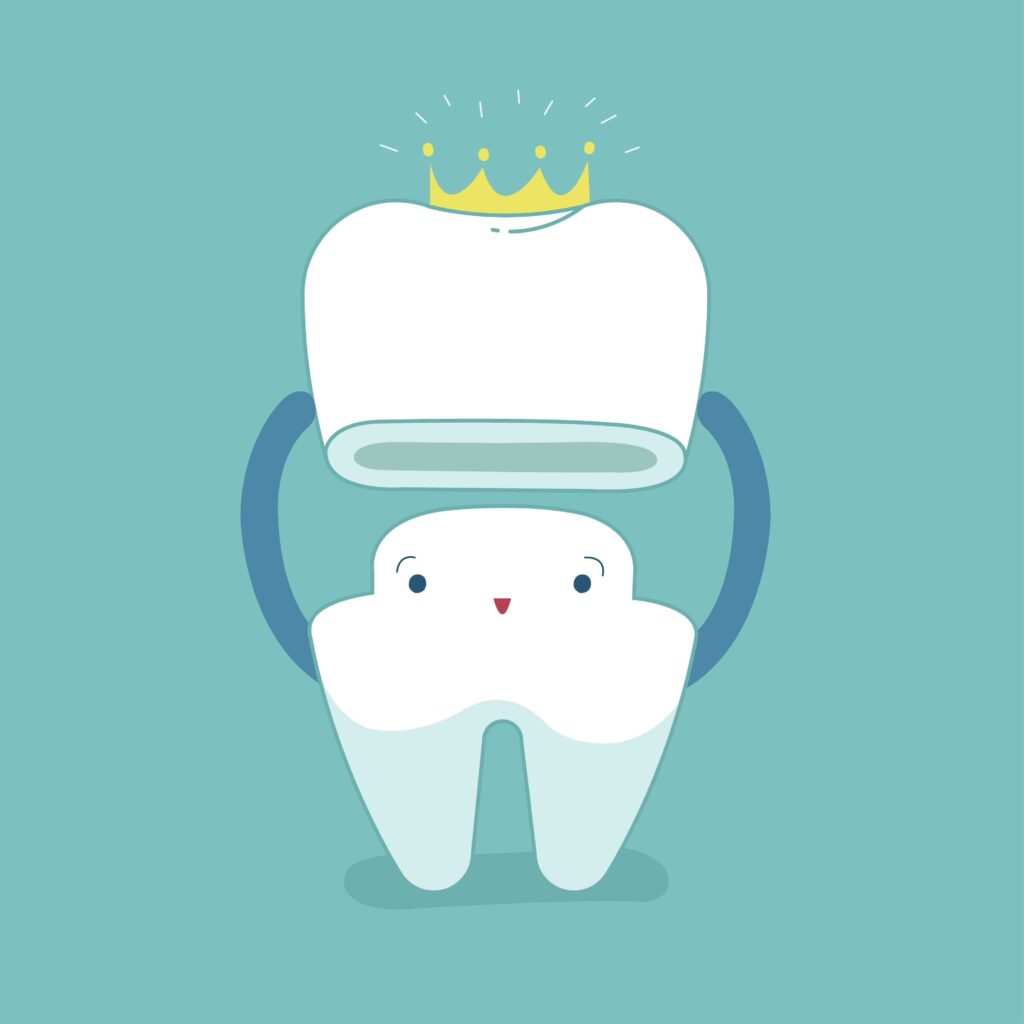
Tooth enamel is incredibly strong. In fact, it is the toughest material in the entire body. However, it can become damaged in various ways, including decay and trauma. The good news is that structurally compromised teeth can be built up and protected with a dental crown. This way, the tooth can survive for many years in the future. Here is what you can expect as you recover from getting your dental crown.
Mouth Numbness
Before your dentist starts your procedure, they will numb the area with a local anesthetic. This means that you won’t be able to feel any discomfort in the area where the treatment is taking place. This numbness will last throughout the duration of the procedure. However, it will also linger for a couple of hours afterward. During this time, it’s important that you don’t accidentally bite down or burn the area. If you do, you will be in for a rude awakening as the anesthetic wears off. It’s best to wait till the anesthetic wears off before you eat.
Soreness
It isn’t uncommon to experience soreness at or around the affected area for a few days following your dental crown procedure. The good news is that this will resolve itself over time. Many patients find relief with over-the-counter analgesic medications and/or pain relievers. If discomfort continues for more than a few weeks or you are experiencing severe pain, give your dentist a call to let them know what’s going on. They will be able to give you further advice from there.
Temporary Restorations
In the process of getting a dental crown, you need to get a temporary dental crown to protect your tooth between your appointments. This crown requires special care to prevent fractures and dislodgement because it is much more fragile than a permanent crown. Here are some rules to implement during this period:
- Avoid sticky or chewy food
- Don’t eat tough or hard foods
- Chew on the opposite side of your mouth
- Be especially careful when flossing around the crown
Oral Hygiene
Once your permanent crown has been placed, you can eat food like you normally would. Keep up an excellent oral hygiene routine. This includes brushing twice, flossing, and rinsing with mouthwash every day. You should also continue to see your dentist for routine cleanings and checkups.
Getting a dental crown isn’t something that you need to dread. Thanks to this restoration, you can keep your damaged tooth in excellent shape for many years into the future.
About the Practice
At Rauchberg Dental Group, we have a team of skilled dentists serving patients in the Parsippany community. With their combined experience and expertise, patients can get pretty much anything they need under one roof. To learn more about dental crowns, or to schedule an appointment, visit our website or call (973) 718-9887.
